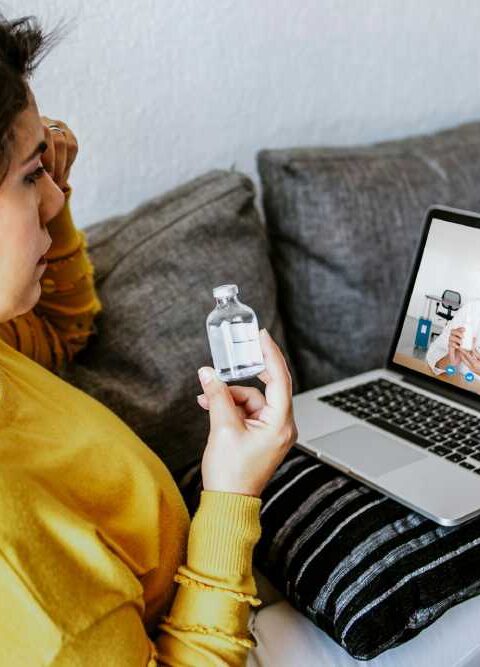Is someone you care about showing signs of addiction? Has your concern for their well-being prompted you to want to speak up about it? Although talking about addiction with a loved one is a crucial step, it’s also a very sensitive matter.
Getting your point across will require openness, honesty, compassion, and patience. Knowing not only what to say, but how to say it, substantially impacts whether or not your loved one may be encouraged to get the help they need. As you continue to read, you’ll learn about how to have a supportive and effective conversation about addiction.
Breaking The Ice
One of the most challenging parts of having a conversation with someone you love about addiction is initiating it. It’s important that you take the right approach and address the matter at the appropriate time. Begin by evaluating how you’re going to express your concerns.
You should always use “I” statements to show how you’re feeling about what you’ve observed. For example, saying, “I am concerned about how much you’re drinking, because I don’t like how it impacts your behavior”, can come off a lot better than, “You need to stop drinking”.
Next, decide where you plan to have the conversation. It should be somewhere neutral where both of you feel comfortable. The discussion should also be done away from others to prevent your loved one from feeling exposed or attacked.
Express Empathy and Support
It’s essential to try and put yourself in your loved one’s shoes and see things from their perspective. Throughout the conversation, be sure to acknowledge their challenges and actively listen to what they have to say without interrupting. Affirming their emotions, experiences, and obstacles, creates a supportive environment that encourages your loved one to open up.
Periodically reinforce that you’re not coming from a place of judgment, but one of love and genuine concern. You can show support by discussing healthy coping mechanisms such as healthy lifestyle changes and investing in relaxation.Offer to participate in these practices with them to strengthen your bond and support them along their journey towards recovery.
Avoiding Negative Outcomes
While acknowledging addiction and getting help is your loved one’s choice to make, your conversation can have a negative impact on the outcome. It is important to avoid confrontation, judgment, accusations, and harsh language that could cause them to feel guilty or ashamed. Failure to avoid these practices can result in your loved one denying there’s a problem, isolating themselves from you, and even trigger them to spiral deeper into their addiction.
Although conversations of this magnitude can quickly escalate as emotions run high, it is important to keep a level head. If you notice the conversation getting tense, it is best to give them time to process what was said. This may mean pausing the conversation and revisiting it later.
Build a Foundation of Trust
Building a foundation of trust is crucial when talking to someone about addiction. Have an open and honest conversation where you and your loved one can speak freely. As differences of opinions arise, acknowledge their views, and respond with love.
Express that while you’ll have to agree to disagree, you understand their side, and want to offer help wherever you can. Let your loved one know that whatever they share with you will remain between the two of you until they feel comfortable sharing it with others. As you strengthen your trust, it can empower them to share more and potentially get the help they need.
Discussing Medical Assistance
While some people can go cold turkey and break their addiction, many find that they need some form of medical assistance to recover. As your loved one shows interest in getting help, talk to them about solutions like a medical detox.
Explain that it’s a safe environment where health and wellness professionals can assist your loved one in eliminating the substances from their bodies. A medical detox center has the personnel and resources to support your loved one through withdrawal symptoms, significantly increasing their chances of a successful long-term recovery.
Future Planning
Detoxing from harmful substances is only the first step in addiction recovery. Your loved one will need to create a long-term plan that will aid them in addressing the emotional and psychological impact of addiction. Discussing the different options available, such as inpatient/outpatient programs, one-on-one therapy, and group counseling, is crucial for comprehensive care. For those seeking dedicated support, a reputable Drug and alcohol rehab Austin (or elsewhere) can provide the necessary resources and personalized treatment plans for a successful journey towards lasting sobriety.
Offering Your Support
Close the discussion by reminding your loved one that they have your support throughout their journey towards recovery. They need to know that they have someone that cares with them through the ups and downs. Knowing that they’re not alone can give them the confidence boost they need to seek help. Whether you offer to go with them to doctors appointments, attend therapy sessions, or simply provide a listening ear, it can mean the world to them.
Talking to someone you love about addiction is a challenging but necessary process. As long as you can remember to approach the conversation from a place of love, empathy, compassion, and support, you can help plant the seed towards change. Remember, the road to recovery is turbulent, but with the right support, it is possible for your loved one to develop a healthier, substance-free future.







